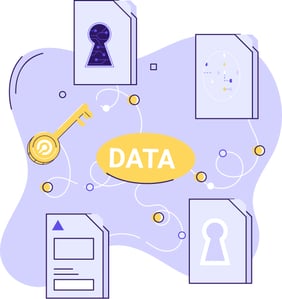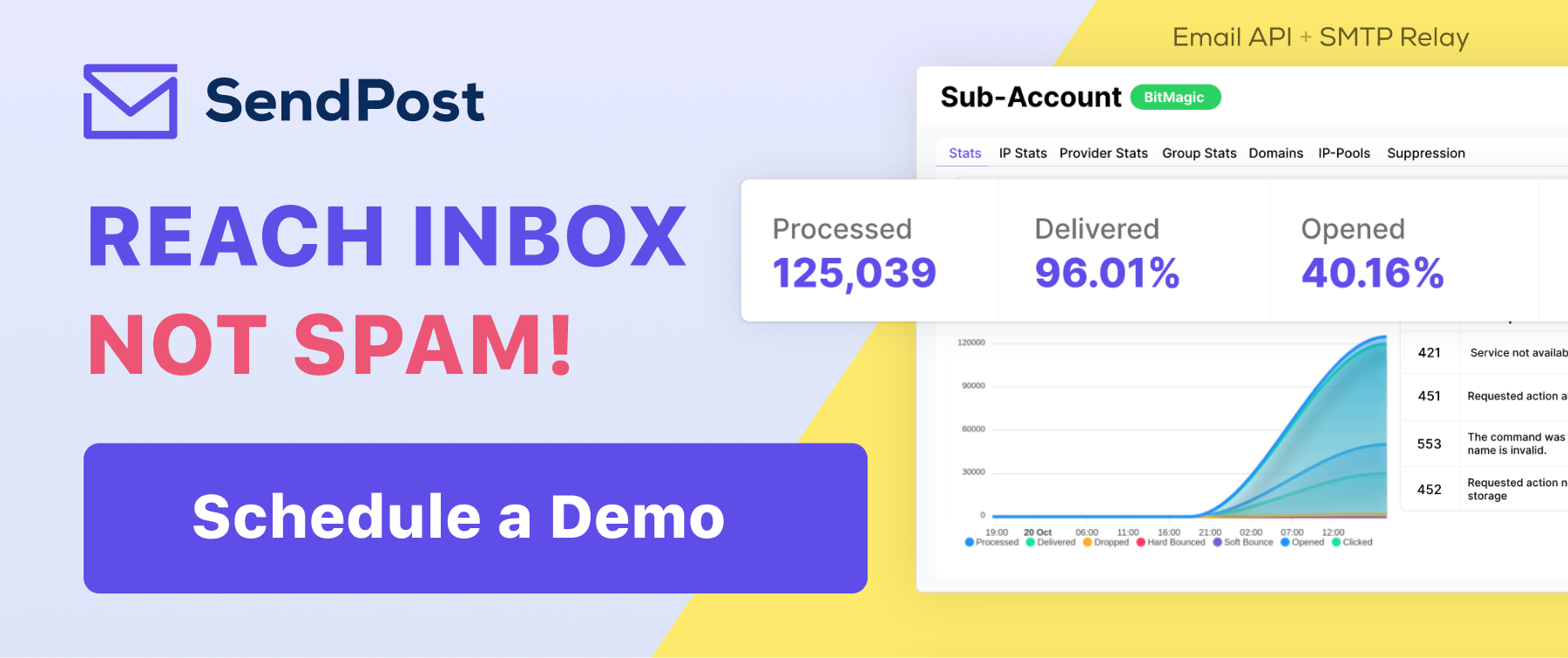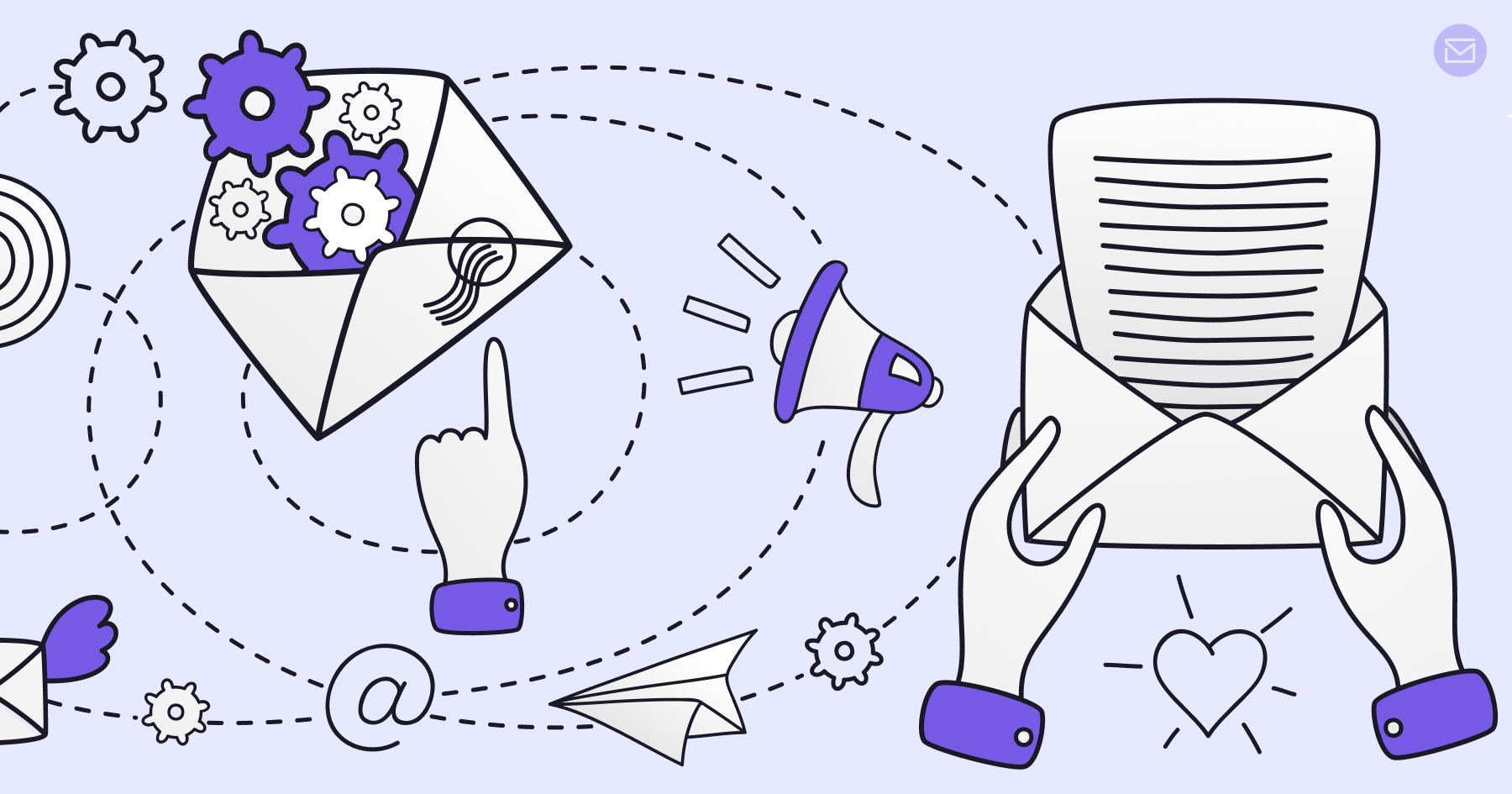SendPost Blog - Email API & SMTP
Email Deliverability and GDPR Compliance: What Marketers Need to Know

In this ever-evolving digital landscape, email continues to be a powerful tool for connecting with our target audience and driving business growth. But here's the catch: to make our email campaigns effective, we need to navigate the intricacies of email deliverability and ensure compliance with the General Data Protection Regulation (GDPR).
Email deliverability is the art of ensuring your emails land in the intended recipients' inboxes, rather than getting lost in the vast sea of spam folders or blocked by overzealous filters. It's a critical factor that directly impacts the success of your email campaigns. After all, what good is a well-crafted message if it never reaches your audience?
While striving for high deliverability, marketers must also navigate the complex waters of GDPR compliance. The General Data Protection Regulation (GDPR) has revolutionized the way businesses handle personal data, and email marketing is no exception.
In this blog, we'll guide you through the essential principles and best practices for achieving GDPR compliance in your email marketing campaigns.
What Is GDPR And How Does It Affect Email Marketing?
GDPR stands for General Data Protection Regulation, and it's a set of rules and regulations implemented by the European Union (EU) to protect the privacy and personal data of individuals. It applies to any organization that collects, processes, or stores the personal data of EU residents, regardless of where the organization is located. GDPR regulates email marketing by emphasizing the importance of obtaining explicit consent, providing individuals with control over their data, enforcing data security measures, promoting transparency, and holding organizations accountable for their data processing activities.
Now, let's dive into how GDPR specifically regulates email marketing:
Consent and Transparency
GDPR requires explicit and informed consent from individuals before you can collect and use their personal data, including email addresses. This means you must clearly explain why you're collecting their email addresses and how you will use them. You need to be transparent about your intentions, such as sending newsletters, promotional offers, or updates about your products. Pre-checked boxes or assuming consent is no longer acceptable under GDPR.
Right to Access and Control
GDPR grants individuals certain rights regarding their personal data. They have the right to access the information you hold about them and the right to request corrections or deletions. In the context of email marketing, this means you must provide an easy way for people to unsubscribe or opt-out from your emails, and you must honor their requests promptly. Additionally, individuals have the right to know who has access to their data and how it's being processed.
Data Security and Storage Limitation
GDPR places a strong emphasis on data security. It requires you to implement appropriate technical and organizational measures to protect personal data from unauthorized access, loss, or theft. This includes encrypting email data, regularly updating security practices, and training employees on data protection. GDPR also limits the retention of personal data, so you should only store email addresses for as long as necessary for the intended purpose.
What Happens If GDPR Regulations Are Not Met?
Failure to comply with GDPR regulations can have serious consequences for organizations. Here are some potential outcomes if GDPR regulations are not met:
Financial Penalties
The supervisory authorities responsible for enforcing GDPR have the power to impose fines on organizations that violate the regulations. The fines can be significant, with the maximum penalties being up to 4% of the organization's annual global turnover or 20 million euros (whichever is higher). The specific amount of the fine depends on the severity and nature of the infringement.
Loss of Data Subject Trust
GDPR is designed to protect individuals' rights and give them more control over their personal data. If an organization fails to meet the requirements and breaches individuals' trust, it can result in a loss of customers and potential customers. People are increasingly aware of their data privacy rights, and they are more likely to engage with organizations that demonstrate a commitment to data protection and compliance.
Legal Action and Lawsuits
Individuals whose data privacy rights have been violated under GDPR have the right to seek legal remedies and compensation. They can file complaints with the relevant data protection authorities or take legal action against the organization directly. This can result in costly lawsuits and legal expenses for the organization, in addition to potential compensation payments to affected individuals.
Business Disruption
Addressing non-compliance issues and remedying data protection shortcomings can be a time-consuming and resource-intensive process. Organizations may need to allocate significant resources to rectify non-compliant practices, implement new procedures, and enhance data security measures. This disruption can impact day-to-day operations, diverting attention and resources from core business activities.
It's important to note that GDPR enforcement varies across different jurisdictions and depends on the severity of the infringement. However, organizations should take GDPR compliance seriously to mitigate risks, protect personal data, and maintain a trustworthy relationship with their customers and stakeholders.
How To Ensure Compliance With GDPR?

Remember, achieving GDPR compliance is an ongoing process that requires a combination of technical, organizational, and procedural measures. By using the right tools, following best practices, and prioritizing data privacy, you can ensure compliance and build trust with your audience.
Here are some key steps to consider:
Obtain Explicit Consent
Obtain clear and explicit consent from individuals before collecting and using their personal data, including email addresses. Implement robust opt-in mechanisms on your website or other touchpoints, ensuring individuals understand what they are consenting to and providing options to unsubscribe or opt-out easily.
Implement Privacy Policies and Notices
Develop and publish a comprehensive privacy policy that clearly explains how you collect, process, and store personal data, including email addresses. Make sure your privacy notice is easily accessible and written in plain language, outlining individuals' rights and how they can exercise them.
Data Security Measures
Implement appropriate technical and organizational measures to ensure the security of personal data, including email addresses. This can include encryption, access controls, regular security audits, and employee training on data protection and security practices. Secure any tools or platforms used for email marketing to prevent unauthorized access or breaches.
Review Data Retention Practices
Regularly review your data retention policies and delete personal data, including email addresses, that are no longer necessary for the intended purposes. Set up processes to handle data deletion requests from individuals promptly.
Use GDPR-Compliant Tools
When sending emails, especially if you're a high-volume sender, choose a reputable email marketing platform or tool that is GDPR compliant. Look for features that facilitate consent management, allow easy opt-out mechanisms, and provide robust data security measures. Check if the tool provides necessary data processing agreements and adheres to GDPR requirements.
Conduct Data Protection Impact Assessments (DPIAs)
Assess the potential risks to individuals' privacy rights when conducting high-risk email marketing activities. DPIAs help identify and mitigate risks, ensuring that privacy safeguards are in place and that you comply with GDPR's accountability principle.
Regularly Audit and Update Practices
Conduct periodic audits of your email marketing practices to ensure ongoing compliance with GDPR. Stay up to date with regulatory changes, review and update your privacy policies and procedures as needed, and provide training to employees to maintain a culture of data protection and privacy.
How Does Complying With GDPR Help Email Deliverability?
GDPR compliance encourages responsible email marketing practices, such as obtaining explicit consent and providing easy opt-out mechanisms. When you follow these practices, you're less likely to generate spam complaints or have recipients mark your emails as spam. This helps maintain a positive sender reputation, which is a crucial factor in email deliverability. Internet service providers (ISPs) and email filters are more likely to recognize you as a legitimate sender and deliver your emails to recipients' inboxes.
High volumes of spam complaints can result in ISPs flagging your emails as spam or even blocking your email domain. Compliance helps minimize the risk of being seen as a spammer and improves your chances of reaching recipients' inboxes.
GDPR places a strong emphasis on building trust and fostering transparent relationships with individuals. When you demonstrate your commitment to data protection and privacy by complying with GDPR, you build trust and credibility with your audience. This trust can lead to better engagement, increased loyalty, and a higher likelihood that recipients will interact with your emails, positively impacting deliverability.
Final thoughts
To further streamline your email marketing efforts and ensure optimal deliverability, consider leveraging tools like SendPost. With SendPost, you can manage multiple sending domains, maintain a good sending reputation, and receive proactive alerts about any potential deliverability risks. Their expertise and support can be a game-changer, especially for large-scale senders where email plays a critical role.
So, take the next step in maximizing your email deliverability and GDPR compliance. Explore the benefits of tools like SendPost to streamline your email campaigns and ensure your messages land directly in your customers' inboxes. Remember, by staying compliant and prioritizing deliverability, you'll unlock the full potential of email marketing and drive the success of your business.








